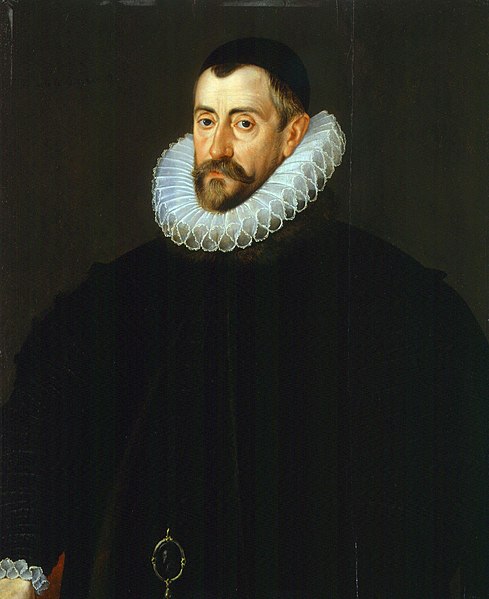
Much of Ackroyd's discussion of Elizabeth's reign is given over to the rivalry between Liz and her cousin, Mary, Queen of Scots.
That theme comes to its inevitable end in chapter 35, a chapter evocatively titled "The Dead Cannot Bite."
By early February 1587 all was in readiness for the end of this rivalry as an earthly contest. Mart had been effectively deposed. Her (Protestant) son, James VI, had been formally recognized as King of the northern neighbor by the English government, though James insisted on referring to his mother as "Queen Mother" anyway.
Mary had been convicted in a trial before the Privy Counselors of conspiring to kill Elizabeth and usurp her throne. All Elizabeth had to do was to give the final order and the execution would proceed.
But ... she hesitated. And sought to find a way to kill her Stuart cousin by indirection, to keep her own sovereign hands free of regicidal blood.
Here's a fine passage from pp. 422-423:
"She asked her secretary, Sir William Davison, to carry to her the warrant for Mary's execution....Elizabeth then told him to get the warrant sealed by the chancellor as quickly and as quietly as possible; it was then to be sent, without proclamation of any kind, to the commissioners....Davison was about to leave her presence when she called him back. What if a loyal subject ... would commit the deed? She mentioned two such subjects, one of whom was Mary's gaoler, Amyas Paulet. By these means she might be able to avoid censure and the unfavorable attention of rival powers. She did not wish to incur the guilt of regicide. She asked Davison to raise the matter with Walsingham [the head of her spy network -- that's his charming visage at the top of this post]; [Davison] agreed reluctantly to do so but told her that it was a labour lost. No official would contemplate such an act without the queen's express commandment."
So ... after her efforts to avoid direct responsibility fail, Paulet specifically writes her saying he cannot act without a warrant. She attempts nothing more in that line and the execution proceeds on the authority of her warrant. The deed was done on the morning of February 8.
When Elizabeth learned that it had been done, on the morning of February 9, she was distraught and furious. Now we flip to p. 426.
"She admitted to signing the warrant but claimed that she had asked Davison to keep hold of it. Now she wanted Sir William Davison's life in revenge. She was persuaded out of this impolitic course, and instead Davison was tried in the court of the Star Chamber for abusing the confidence of the queen; he was committed to the Tower, but was released a year later. He, too, had played his part."
Comments
Post a Comment